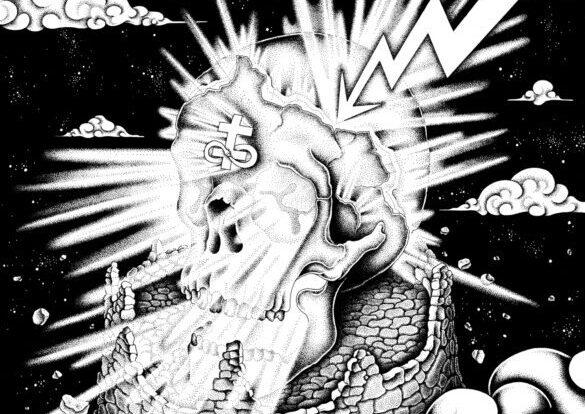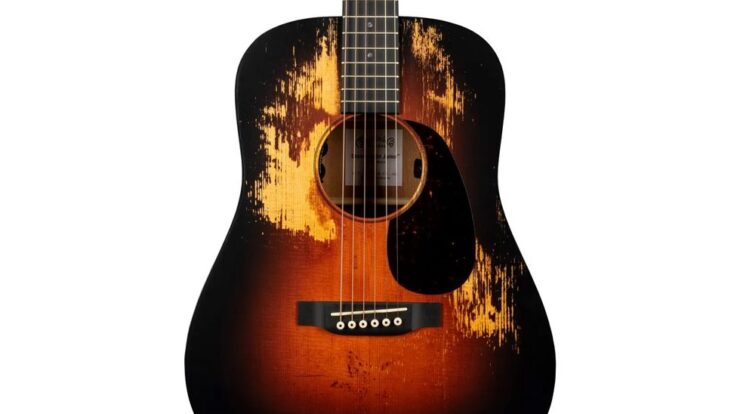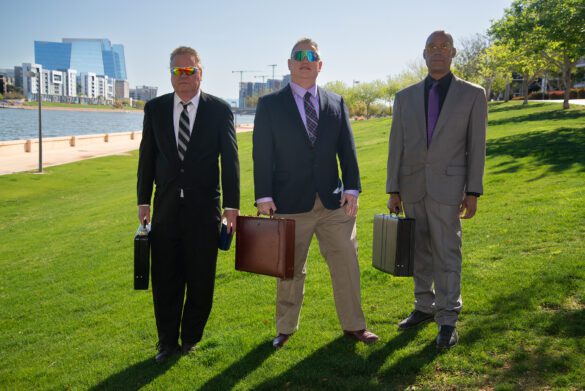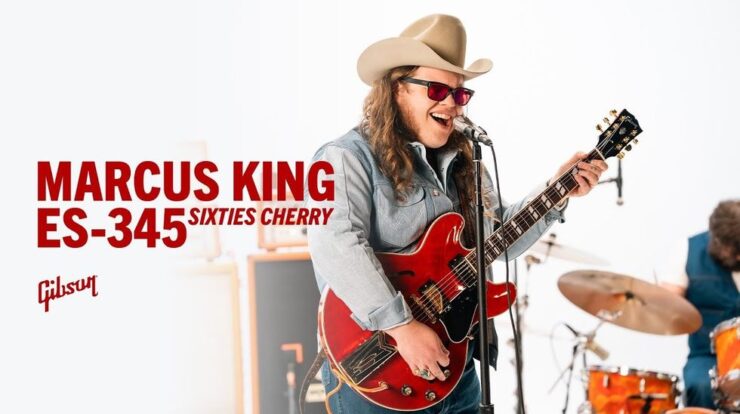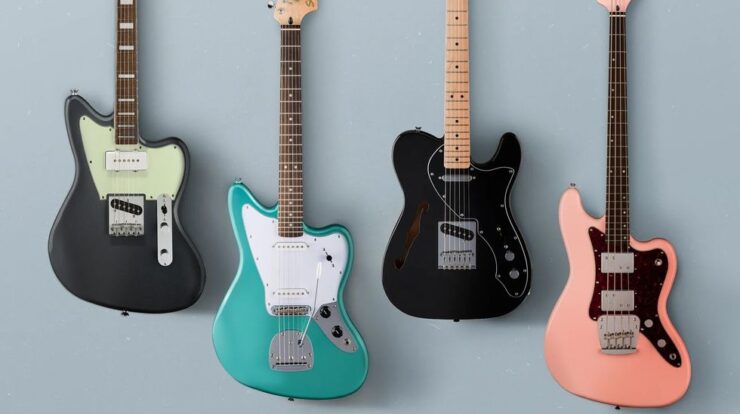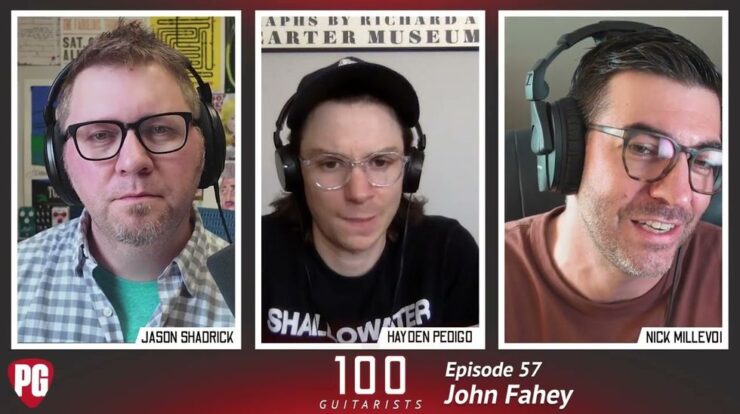This post was originally published on this site
Rerecording storied music is always a tricky proposition. Bands risk not just bad publicity but also alienating their listeners. Sometimes, however, the gamble works. The long-running British thrash band Onslaught toyed with the idea of rerecording their first album, Power From Hell, to celebrate its 40th anniversary. But they quickly shelved the idea and instead released what amounts to a history lesson on Onslaught’s early years.
The gamble paid off. The double-disc set Origins of Aggression features new recordings of Onslaught’s seminal early songs, as well as a collection of punk and metal covers of bands that influenced the British thrashers. Both the new recordings and covers are played with the same intensity and energy that Onslaught had at the onset of their career. Decibel spoke with the band’s founder and guitarist, Nige Rockett, about the project.
Where did you come up with the idea of recording these songs? When bands revisit and reissue their earlier catalog, fans have mixed feelings.
The original plan was to rerecord Power From Hell this year for the 40th anniversary. It’s a huge milestone. I spoke to some influential people who I know are massive fans of the album. And they said, ‘No, no, please don’t rerecord that.’ We went back to the drawing board and developed a plan to tell the story of Onslaught’s conception from 1982 to 1989—the best of Onslaught in the early years.
When people go back and rerecord classic songs or albums, they often regret it. Exodus went back and redid Bonded by Blood. I’m not even sure if the band acknowledges the record.
People didn’t want to hear it. That record was the only one with (Paul) Baloff, and people were like, “No, hands off.” What we’ve done is snippets from each album, the best tracks from each. I think it works. Knock on wood, there have been no negative comments, and everybody has praised what we’ve done with the record.
How did you select the tracks that you thought were most representative of the Onslaught story?
We started with the very first two tracks we wrote. That was a no-brainer, as it marked the beginning of our journey. Then it was taking the best tracks from each album to rerecord. We still play probably a quarter of those tracks. We are so familiar with them that we’ve made a few little tweaks here and there. We feel comfortable playing them, and I think that comes across in the rerecording.
What is it like to hear Dave (Garnett) perform these songs, and what do his vocal chops bring to this older material?
He’s been playing the songs live, and fans are used to hearing these tracks with Dave singing. I think he brings a whole new freshness to those tracks. We had three different singers on the first three albums. Dave pulls it all together, and it works. Dave’s got a great voice. He’s very versatile. He can cover the whole thing from the more punky material right up to “In Search Of Sanity” (the original was recorded by iconic British metal vocalist Steve Grimmett, also of Grim Reaper).
Where did you find Dave, and how did he become part of the band? (Garnett joined in 2020 during the pandemic.)
He was in a band with our drummer, James Perry, when we needed a new vocalist. James put Dave’s name forward right away. I checked out some of his material and didn’t think he would be a good fit. But James kept bringing him up and said we have to give this guy a chance. He was a massive Onslaught fan and came into rehearsals and knew all the old material. Then he delivered it differently from what we heard him sing before; he sounded incredible. Within six weeks of joining the band, he was in the studio recording Generation Antichrist.
One of the hardest things for singers who come into an established band is bridging that gap between classic material and the desire to put their stamp on the music. How has Dave been able to maintain the right feel while also incorporating his style?
He’s flexible and doesn’t have to follow the same vocalist over a few albums. There were different singers on each of those three albums. It made Dave’s job a little bit easier.
There’s something about European thrash. When you get into it, you become a lifer.
I started life in a hardcore punk band. I was always into punk music from a young age; it was a way of life for me. You tend to carry that attitude with you. I still have the punk attitude today, and it runs through our music from the early demos through to Generation Antichrist. I can’t speak for the German (thrash) bands, but they’ve been very steadfast in sticking to their beliefs and the way they go about things. If there were a metal equivalent of punk, it’s thrash. It’s all about transmitting energy like hardcore and punk,
What I love about the covers you pick is that you jump through decades, genres, and styles. How did you decide on the songs?
I wanted to tell a story about what these tracks did for Onslaught in the early days. These songs were inspirational. Most of those tracks we hardly touched in terms of arrangement because we consider them classics, and I didn’t want to mess with them.
The connection to British bands is obvious, but I’m wondering when you first discovered the Dead Kennedys.
The Dead Kennedys were on a different level. The British punk stuff was basic, just very aggressive. When it came time to record “Holiday In Cambodia,” I thought it was going to be pretty straightforward. It turned out to be one of the most difficult tracks. Once you start breaking it down and learning the parts, there are all these layers. It took a lot of work to get it where we wanted it to be.
Is it ever interesting to consider that you’re still out there playing all of this material that was recorded four decades ago?
I never get bored with playing songs like “Thermonuclear Devastation Of The Planet Earth.” You can see how much the fans love that song from the reactions. We’ve got enough of a catalogue to mix things up every night and keep things interesting.
What do you still love about making and playing this music, this far into your career?
In the early years, we were more prolific. I now take my time to write the music. We wait like five years to release albums (laughs). We also love to tour – it’s amazing to meet all these cool people and visit these countries. We like to give ourselves time to sit back and relax and make an album without forcing it, you know, let the music come naturally. But once we’re on a roll, we’re pretty quick. I want to make the most of the time.
The post Q&A: Nige Rockett on Rerecording Onslaught’s Anarchic Early Material appeared first on Decibel Magazine.

